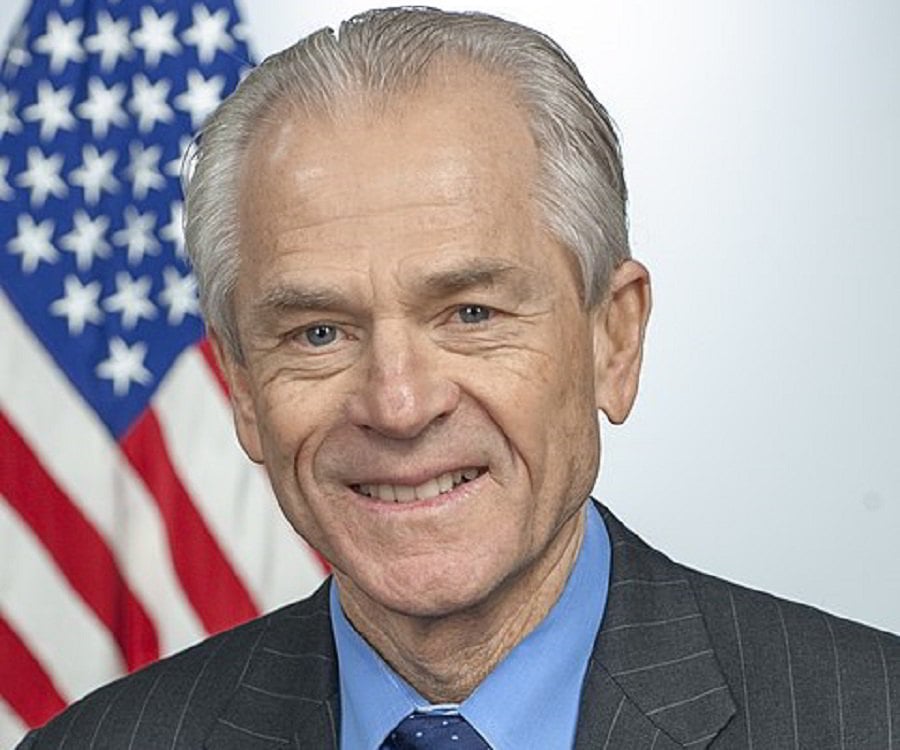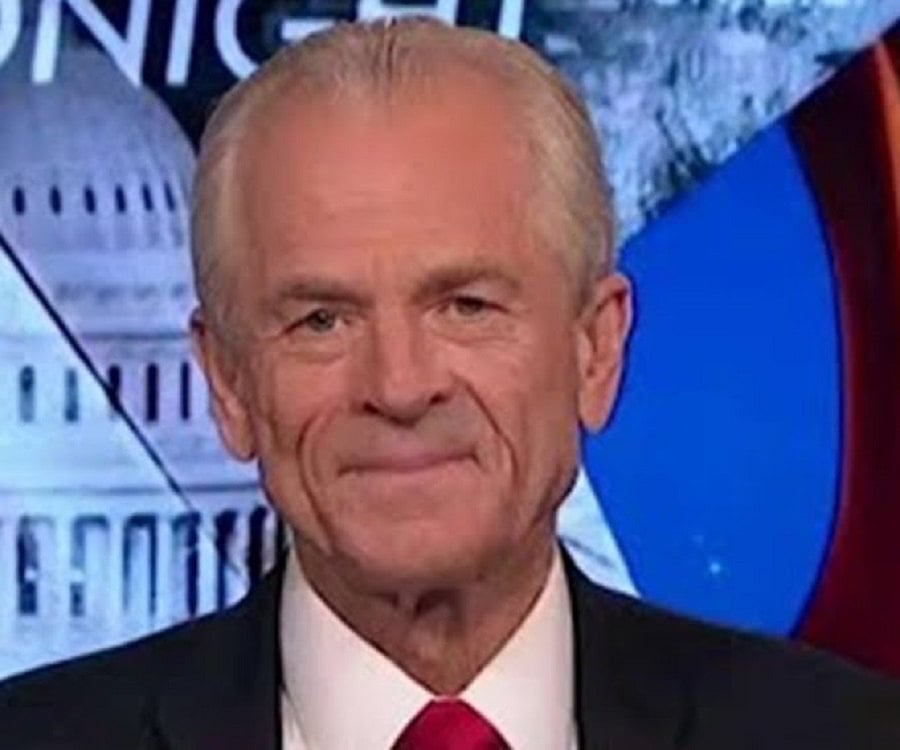Peter Navarro: Nationality, Biography & Family Insights
Ever wondered about the forces that shape global trade and the individuals who wield influence within it? Peter Navarro, a name synonymous with trade policy during a transformative period in American politics, offers a complex narrative that continues to intrigue.
As an economist, author, and former advisor to President Donald Trump, Navarro's career has been marked by outspoken critiques of China's economic practices and fervent advocacy for protectionist trade policies. His journey, from academia to the corridors of power, provides a compelling look into the intersection of economics, politics, and national interests. His influence, particularly during his tenure in the White House, remains a subject of scrutiny and debate. From his work as a business professor to his role as the director of the White House National Trade Council, Navarro's actions have consistently generated both praise and controversy.
| Category | Details |
|---|---|
| Full Name | Peter Kent Navarro |
| Date of Birth | July 15, 1949 |
| Place of Birth | Cambridge, Massachusetts, U.S. |
| Age (as of 2025) | 76 years old |
| Nationality | American |
| Education | Harvard Kennedy School, Harvard University |
| Known For | Former Director of the White House National Trade Council, outspoken critic of China's economic policies, author, and economist |
| Political Affiliation | Republican |
| Marital Status | Divorced (Leslie Lebon) |
| Children | Alex (Son with Leslie Lebon) |
| Parents | Alfred Navarro and Evelyn Littlejohn |
| Previous Roles | President's Assistant during the Trump Administration, Director of Trade and Manufacturing Policy, Coordinator of the National Defense Production Act Policy. Senior Counselor for Trade and Manufacturing to U.S. President Donald Trump. |
Source: Wikipedia
Born in Cambridge, Massachusetts, in 1949, Peter Navarro's life and career are deeply intertwined with the evolution of economic thought and political strategy. His academic pursuits at the prestigious Harvard Kennedy School and Harvard University laid the foundation for his future endeavors. As a business professor, he developed a reputation for his expertise in economics, particularly in the areas of international trade and investment. This academic background would later prove instrumental as he navigated the complexities of trade negotiations and policy formulation during his time in the White House. It is this comprehensive background that has shaped his unique perspectives on global economics.
Navarro's entry into the political arena marked a significant shift in his career trajectory. Serving as the director of the White House National Trade Council during the Trump administration, he became a key figure in shaping the administration's trade policies. His role involved advising the president on trade-related matters, negotiating trade deals, and advocating for policies aimed at protecting American industries and workers. This period saw the implementation of significant trade measures, including tariffs on imports from China and other countries, aimed at addressing what he saw as unfair trade practices. This also included support of a wider nationalist agenda along with the home manufacture of supplies linked to the coronavirus.
One of the defining characteristics of Navarro's public persona has been his outspoken criticism of China's economic policies. He has been a vocal advocate for policies designed to counter what he views as China's unfair trade practices, including intellectual property theft, currency manipulation, and state-sponsored subsidies. His views have often put him at odds with mainstream economic thought, which generally favors free trade and open markets. Navarro has argued that these practices undermine American industries and harm American workers, leading him to champion protectionist measures as a means of safeguarding national interests.
In January 2025, Peter Kent Navarro was serving as the Senior Counselor for Trade and Manufacturing to U.S. President Donald Trump, a role he had held since January 2025. Prior to this, he served in the first Trump administration as the director of the White House National Trade Council, and subsequently as the director of the new Office of Trade and Manufacturing Policy. These roles underscore the pivotal position he occupied within the administration's economic and trade strategy.
Navarro's stance on China has been particularly pronounced. He has authored books and articles that detail his criticisms of the country's economic model and its implications for the United States. His perspective has resonated with a segment of the American public and political elite who share his concerns about the economic and strategic challenges posed by China. These concerns have contributed to a broader debate about the future of U.S.-China relations and the need for adjustments in trade policy.
Beyond his policy work, Navarro is an accomplished author. His publications have explored various economic themes, including trade, investment, and globalization. His books, often critical of prevailing economic orthodoxy, have contributed to the national conversation on these important topics. His writings provide insights into his thinking and the rationale behind his policy recommendations. He has used his books to promote his views on trade policy.
Before his career in politics and economics, Navarro pursued education at Harvard Kennedy School and later graduated from Harvard University. Before joining the White House, Navarro was a professor at the University of California, Irvine. His academic background equipped him with the knowledge and analytical tools necessary to tackle complex economic issues. His transition from academia to government showcased his ability to apply theoretical concepts to practical challenges.
Navarro's personal life includes his marriage to architect Leslie Lebon. They have a son, named Alex. The couple lived in Laguna Beach while Navarro was a professor at UC Irvine. Lebon filed for divorce in Orange County in later 2018, and the divorce was finalized in December 2020. His father was Albert Al Navarro, and his mother was Evelyn Littlejohn.
The question of Peter Navarro's nationality is straightforward: he is an American citizen. However, the broader question of his identity and background is more nuanced. His family history, upbringing, and education have undoubtedly shaped his views on the world. His story is, in part, a reflection of the American experience itself, with its diverse influences and ongoing debates about national identity and purpose. His awakening on the race issue came when he was eight years old and visited a segregated Woolworth's store in West Palm Beach, Florida.
In addition to his professional life, Navarro has other interests. He worked as a clarinetist and served as the frontman of a house band. This highlights a different side of his personality and interests that goes beyond his work as an economist and political advisor. His early experiences provide a glimpse into the diverse influences that have shaped his perspective. It is important to understand the full picture of Peter Navarro to better appreciate his work and positions.
The scrutiny and debate surrounding Peter Navarro and his policies are likely to continue. As global trade dynamics evolve and the relationship between the United States and China remains complex, his ideas will continue to be relevant. His influence, while diminished compared to his time in the White House, endures. His legacy will be judged by historians and policymakers for years to come.
Emma Navarro, a professional American tennis player born on May 18, 2001, in New York City, has also been in the spotlight. As of January 2025, she was ranked 8th by the WTA and had won one singles title in her career. Emma's siblings share American nationality. Her father, Ben Navarro, is a billionaire who has contributed to political action committees, supporting figures like Tim Scott. Daves paternal grandfather was Gabriel Navarro Celis, a Mexican emigrant.
In conclusion, Peter Navarro's life and career offer a compelling case study in the interplay of economics, politics, and national interests. His story provides insights into the making of economic policy, the complexities of trade relations, and the enduring debates about the role of government in a globalized world. His influence is undeniable, and his views, though often controversial, have shaped the ongoing discussion about America's place in the world. His journey, from academia to the highest levels of government, is a testament to the power of ideas and the impact one individual can have on the course of history.


